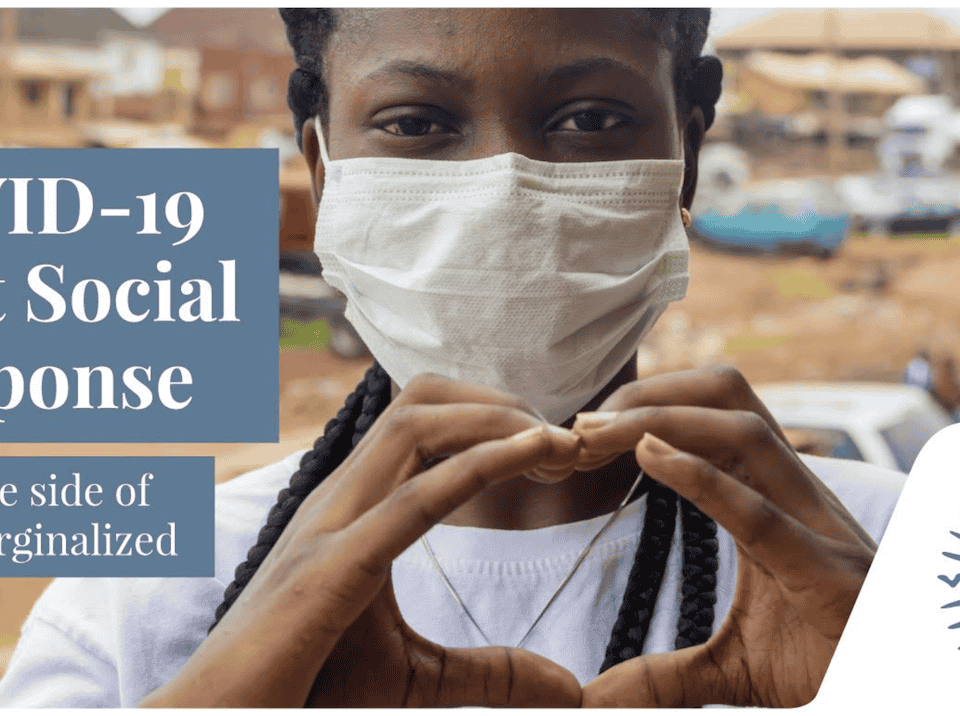This website uses cookies so that we can provide you with the best user experience possible. Cookie information is stored in your browser and performs functions such as recognising you when you return to our website and helping our team to understand which sections of the website you find most interesting and useful.
Challenges that require collaboration
I was initiated into Ignatian spirituality some twenty years ago during my religious formation. In retrospect, I believe that it prepared me for this very special journey and mission. In 2011 I joined the St. Ignatius Community (Winnipeg, Canada) and, inspired by Jesuit prison ministry, I began to think about how I could collaborate with the Society of Jesus in the social apostolate.
In 2018 I joined the Jesuit Institute in South Africa, which offered me the opportunity to contribute directly to the work of justice and the mission of the Society. My experience is that the Jesuit social apostolate plays a crucial role in society as it gives voice to the marginalized. In South Africa I have worked in particular on two projects focusing on gender justice, racial justice, poverty and advocacy on behalf of migrants.
I have experienced God’s presence, support and love in many ways throughout my journey in the Society of Jesus. Firstly, at the individual level, through spiritual conversations that have driven my personal and spiritual growth. Secondly, by collaborating with Jesuits committed to the work of justice and, more specifically, in the area of migration. They have shared with me some of the struggles and joys of the ministry. One of the highlights was spending a week in the Musina refugee and migrant camp on the border between South Africa and Zimbabwe with the Jesuit Institute’s media team and Fr Rampe Hlobo SJ. If I had not been a collaborator of the Society, I would not have had an opportunity like this in my life. Listening to the stories of the migrants and refugees allowed me to gain their confidence and gave them the certainty that I was ready to listen to them with an open heart. It was an opportunity to grow, an invitation to be more reflective. In the reflections we made at the end of the day I received both the support of the team and the love of God.
The Jesuit social apostolate carries out a formidable work in many parts of the world, often playing an important role where the institutional structure of the Church sometimes fails to respond to the needs of society as a whole. This is what keeps her collaborating in this apostolate: the certainty of being part of a mission that benefits the marginalized and forms people who are increasingly aware of justice issues.
We live in a time when collaboration in ministry is very much needed. And yet, it still seems to be a challenge for us. I have noticed some missed opportunities for collaboration in the Society of Jesus and in the Church as a whole. Such moments are discouraging, a source of desolation. We must ask ourselves: what makes collaboration between us and with third parties or institutions difficult? What change of attitude based on the Gospel is needed to do what we do for God?
We need a ministry with better defined goals. One of the highlights of this year (2019) was the reception of the Universal Apostolic Preferences document, which clearly defines the needs of both the Church and society in today’s world for the next decade. What I find especially useful about them is the way they foster an even deeper integration of the social apostolate into the wider works of the Society. The social apostolate is not so much a concrete part of the work as something that should inspire the ministry in general. For me, as a collaborator in the field of media and communication, this is a corroboration of what I do, but also a challenge in terms of how I do my work.
Extract from the testimony published in https://www.sjesjesuits.global/en/index.php/2020/02/06/challenges-to-collaborate/





